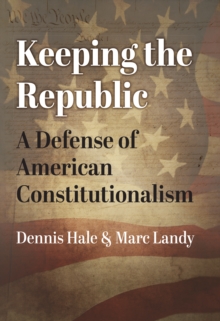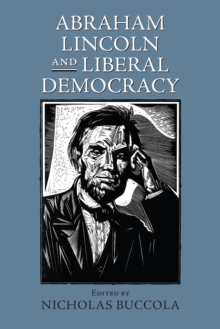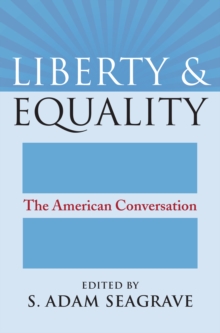
Citizenship and Democratic Doubt : The Legacy of Progressive Thought Hardback
by Bob Pepperman Taylor
Part of the American Political Thought series
Hardback
- Information
Description
Much of the world today views America as an imperialist nation bent on global military, economic, and cultural domination.
At home few share this negative view, largely because of a widespread belief in the irreproachable purity of our goals.
Bob Pepperman Taylor, however, argues that our moral self-righteousness may potentially imperil our democratic ideals and threaten democracy itself by plunging us into illiberalism.
Taylor looks closely at six key thinkers in the Progressive tradition whose work helps illuminate the essential flaws in our current thinking about democracy.
Their writings, he contends, offer insights that can reinforce and strengthen a vigorous democratic faith, warn us of the dangers inherent in various forms of democratic arrogance, and counsel a kind of doubt or humility that would make us much better democratic citizens.
All six thinkers - Herbert Croly, Walter Lippmann, John Dewey, Jane Addams, Carl Becker, and Aldo Leopold - were active in the first half of the twentieth century and grew out of and reflect the temper of American Progressivism.
Their writings, in Taylor's view, illuminate harmful beliefs that constrain and even delude the popular democratic imagination in America.
Taylor argues that Croly, Lippmann, and Dewey overestimate the normative value of science and underestimate the utopianism of their democratic visions.
By contrast, Addams, Becker, and Leopold resisted these scientific and utopian temptations and offered reform-minded Americans a stronger understanding of what it meant to practice democratic citizenship.
Addams counsels us to ""walk humbly before God""; Becker embraces the Progressive faith in equality and justice but discards its dogma of certain progress; and Leopold employs moral authority rather than his scientific training to defend our natural inheritance in what he recognizes is an ambiguous political debate.
These three, Taylor argues, by aiming less at the grand transformation of the human condition than at practical solutions, show greater respect for democratic possibilities than did their more messianic counterparts.
They promote a much more modest understanding of the possibilities both for democracy and the role of science in informing democratic practice.
They also point to a clearer understanding of the virtues that citizens should cultivate if democracy is to prosper.
Information
-
Out of StockMore expected soonContact us for further information
- Format:Hardback
- Pages:240 pages
- Publisher:University Press of Kansas
- Publication Date:30/11/2004
- Category:
- ISBN:9780700613489
Information
-
Out of StockMore expected soonContact us for further information
- Format:Hardback
- Pages:240 pages
- Publisher:University Press of Kansas
- Publication Date:30/11/2004
- Category:
- ISBN:9780700613489



